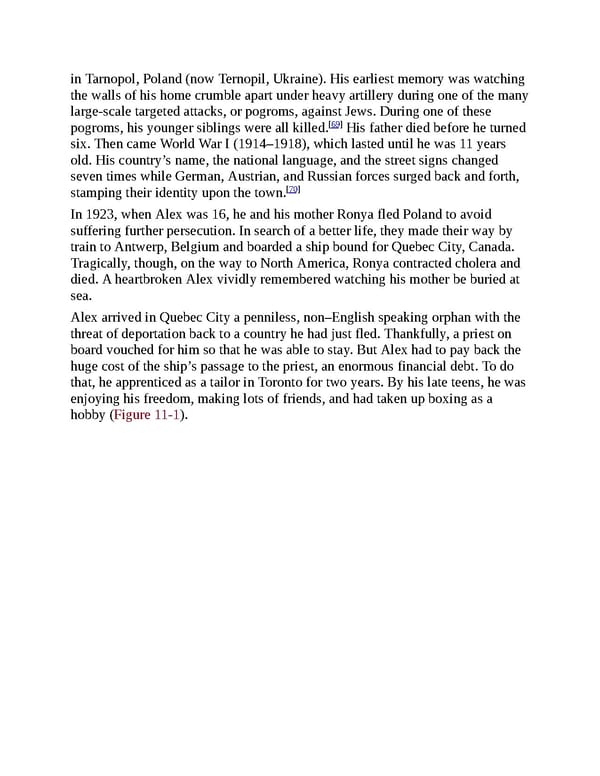in Tarnopol, Poland (now Ternopil, Ukraine). His earliest memory was watching the walls of his home crumble apart under heavy artillery during one of the many large-scale targeted attacks, or pogroms, against Jews. During one of these [69] pogroms, his younger siblings were all killed. His father died before he turned six. Then came World War I (1914–1918), which lasted until he was 11 years old. His country’s name, the national language, and the street signs changed seven times while German, Austrian, and Russian forces surged back and forth, [70] stamping their identity upon the town. In 1923, when Alex was 16, he and his mother Ronya fled Poland to avoid suffering further persecution. In search of a better life, they made their way by train to Antwerp, Belgium and boarded a ship bound for Quebec City, Canada. Tragically, though, on the way to North America, Ronya contracted cholera and died. A heartbroken Alex vividly remembered watching his mother be buried at sea. Alex arrived in Quebec City a penniless, non–English speaking orphan with the threat of deportation back to a country he had just fled. Thankfully, a priest on board vouched for him so that he was able to stay. But Alex had to pay back the huge cost of the ship’s passage to the priest, an enormous financial debt. To do that, he apprenticed as a tailor in Toronto for two years. By his late teens, he was enjoying his freedom, making lots of friends, and had taken up boxing as a hobby (Figure 11-1).
 UX Strategy: How to Devise Innovative Digital Products that People Want Page 322 Page 324
UX Strategy: How to Devise Innovative Digital Products that People Want Page 322 Page 324